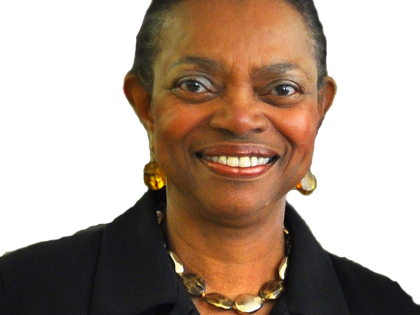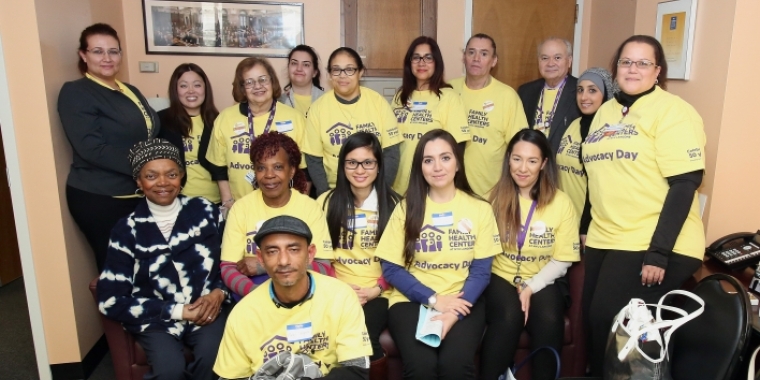
Senator Montgomery meets with representatives from NYU Lutheran Family Health Centers to discuss the importance of Family Health and School Based Health Centers
Senator Velmanette Montgomery
March 5, 2017

Senator Montgomery welcomed Community Health Centers to Albany to fight for funding for vital community-based health services and school-based health centers. NYU Lutheran Family Health Centers joined the Community Health Care Association of NYS (CHCANYS) and 900 community health care supporters to meet with lawmakers to discuss New York’s health care safety net.
The NYU Lutheran Family Health Centers (LFHC) network provides high quality, affordable outpatient primary health care and support services close to home. As one of the largest Federally Qualified Health Center (FQHC) networks in the nation, LFHC includes nine primary care sites, 37 school based health/dental clinics and numerous social support services. With approximately 99,000 patients, the LFHC network handles over 602,000 visits annually. NYU Lutheran Family Health Centers offer culturally sensitive services and has several sites in Senator Montgomery's district. NYU Lutheran also sponsors mutliple school based health centers in SD 25 including locations at PS 15, PS 307, IS 136, Boys and Girls High School and Sunset Park High School. School-based health centers are vital community health providers that work on the front lines to bring comprehensive primary medical care, dental care and mental health services to children and adolescents in the school setting where they spend at least one-third of their day. For more information or to find a health center near you, visit http://www.lutheranhealthcare.org/Main/LutheranFamilyHealthCenters.aspx
CHCANYS represents the state’s network of non-profit, community-based comprehensive health care facilities, known as Federally Qualified Health Centers (FQHCs). They provide comprehensive health care regardless of a patient’s insurance status or ability to pay. Working out of 650 sites statewide, FQHCs serve two million New Yorkers annually – an increase of 35 percent since 2008. Some 86 percent of patients are near or below the poverty line.
CHCANYS top priority this year is a request for the state to increase funding for indigent care by $20 million – an increase will maintain 2016 funding levels and avoid undue financial harm to FQHCs and other safety net providers that serve high numbers of uninsured New Yorkers. Without these additional dollars, many FQHCs may be forced to reduce staff, eliminate expansion plans and/or limit access precisely at a time when it is anticipated the numbers of uninsured may increase statewide, unnecessarily increasing reliance on more costly forms of care. To learn more about the Community Health Care Association of NYS (CHCANYS) and their legislative agenda, visit http://www.chcanys.org
related legislation
Share this Article or Press Release
Newsroom
Go to NewsroomNY law requires parents in prison be housed closest to kids
December 24, 2020
Senator Montgomery's Final Newsletter
December 24, 2020
Governor Cuomo Signs the "Jonah Bichotte Cowan Law"
December 22, 2020